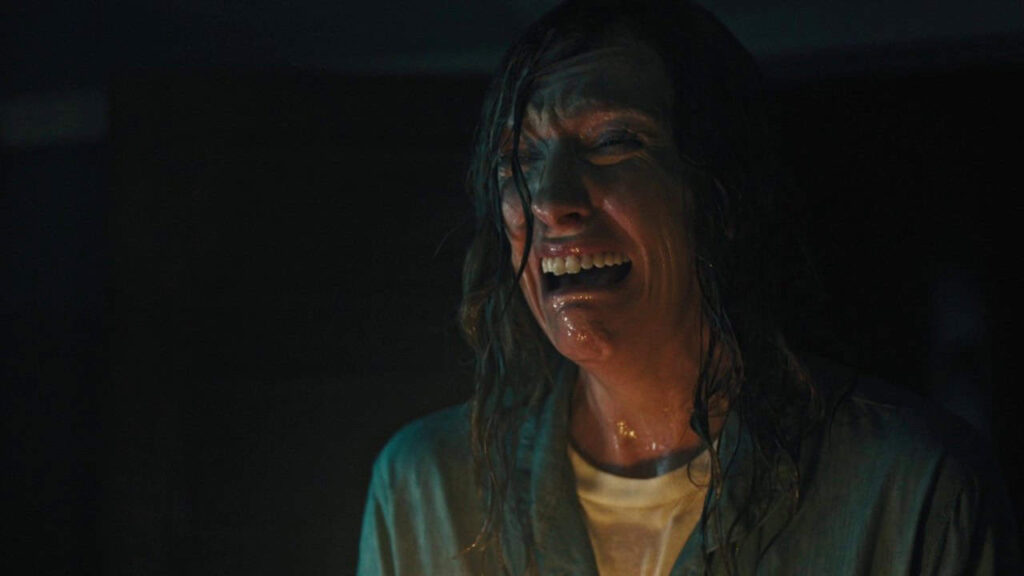By Robert Scucci
| Published
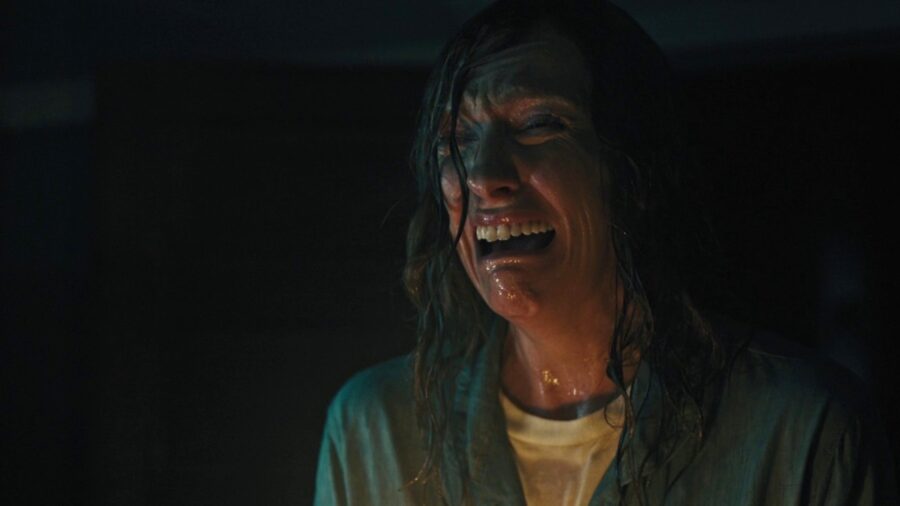
Have you ever been so disappointed by a movie that when you read its reviews or talked to your friends about it, you thought you watched something completely different? I felt this kind of gut-punch over the weekend when I finally buckled down and steamed Hereditary on Netflix. As somebody who seeks out terrible movies for the sole purpose of seeing if they have any redeeming qualities, were panned because they didn’t find the right audience at the time of their release, or were simply too ahead of their time to be appreciated, I experienced a kind of cognitive dissonance I’ve actually never felt before unpacking Hereditary, and I’m about to get into why.
But first, there’s something I need to say:
Hereditary is phenomenally acted and beautifully shot, has a unique premise and a killer film score, and boasts some genuinely tense moments that will keep you at the edge of your seat because of its supremely talented and obviously dedicated cast. What’s more, the film is more than just “elevated horror,” as it makes an earnest attempt to unpack some seriously heavy subject matter like grief, resentment, and how quickly both of these things can quickly unravel a family that’s trying their best.
So what’s the problem?
Hereditary has all of the necessary elements to make a fantastic film, but its premise is undermined by its own heavy-handed foreshadowing.
Chekhov’s Gun In Hereditary

If you haven’t yet watched Hereditary, be fairly warned that I will be carpet-bombing the rest of this article with spoilers to make my point.
The principle of Chekhov’s gun is a simple one: every element in a story should be relevant to the plot. For example, if there’s a gun in the first act, it only makes sense that it will be used by the third act. Simple enough, right?
In my mind, Hereditary plays out like Ari Aster just learned about this principle, and applied it to every single frame of his directorial debut to the detriment of his own storytelling.
I can go on for days about how Hereditary overuses this principle to the point of exhaustion, but I’ll settle for a couple of egregious examples that took me straight out of the movie because too much foreshadowing is patronizing in the sense that it feels like crucial plot points are being spoon fed to an audience who’s probably smart enough to figure out some, or most of, these things themselves.
Candy At A Funeral
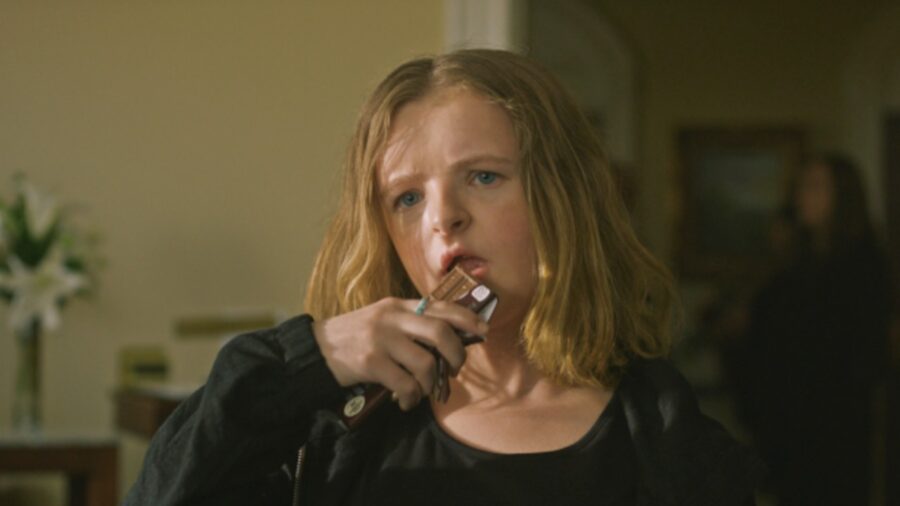
Hereditary opens with Annie Graham’s (Toni Collette) mother, Helen’s, funeral, which sets the entire story in motion. During the funeral, Annie’s 13-year-old daughter, Charlie (Milly Shapiro), eats a candy bar. In a passing line of dialogue, Annie expresses concern over whether the candy bar has nuts in it because Charlie is fatally allergic to nuts, and they don’t have their EpiPen readily available.
Up until Charlie’s death, she’s seen snacking on chocolate whenever she’s not cutting off bird heads with scissors (more foreshadowing), or making that awful clicking sound with her mouth (more foreshadowing).
When Charlie’s older brother, Peter (Alex Wolff), is convinced by Annie to let her tag along at one of his friend’s parties, he begrudgingly does so in order to mitigate the tense family dynamic at home. The party, full of unsupervised teens, is your typical high school party that you’ve seen in movies before with tons of underage drinking and a bag of marijuana getting passed around for good measure to drive the point home.
The party in Hereditary, however, is unique in the sense that while most attendees are engaging in recreational substance abuse while no adults are around, there’s also a baking area with chocolate cake; chocolate cake with nuts in it; chocolate cake that Charlie is allergic to and eats without hesitation. And once again, not an EpiPen in sight.
When Charlie’s throat starts to close, Peter comes to the rescue, and drives at reckless speeds to get her back home from the party. Charlie, in a moment of intellectual brilliance, decides to hang her head out of the car window, which results in her decapitation.
One could argue that Charlie’s death was the result of her being driven to suicide by the demon Paimon, and she was simply doing what she was told by forces we don’t understand, but after so much buildup around the nut allergy, it plays out like nothing more than an act of carelessness because of how many sequences before the incident involved her eating chocolate, unharmed.
You’re Not Just Going To Leave Her Head There, Right?
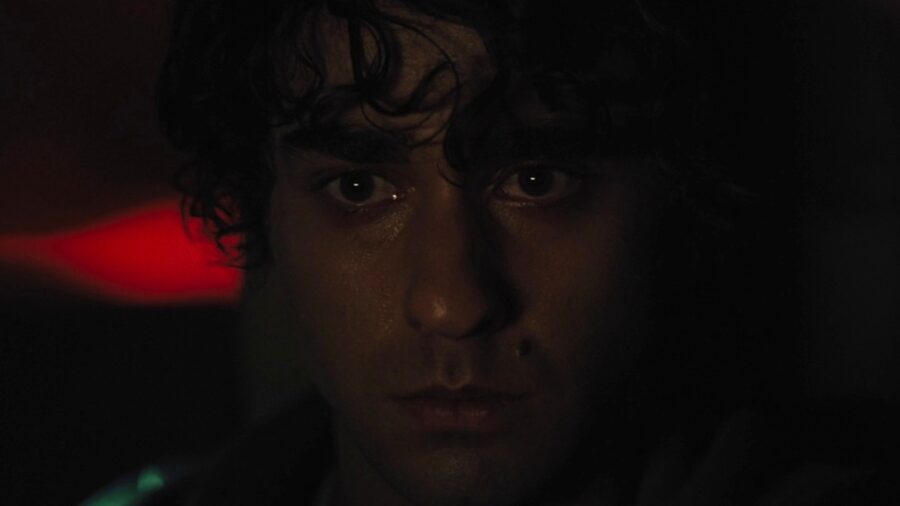
Peter’s behavior in Hereditary makes no sense to me. Though he’s clearly traumatized by the fact that he inadvertently committed vehicular manslaughter while under the influence, he decides the best way to handle the situation is by driving home and going to bed, leaving Charlie’s decapitated body in the back seat for Annie to find, to her horror, the next morning. But it quickly becomes clear that this is another example of heavy-handed foreshadowing when we get a look at Charlie’s head on the side of the road, surrounded by flies.
If you’ve seen enough horror movies, you know exactly what Ari Aster is doing here. Now that the audience knows about the flies, they also know something super spooky is going to happen in the Graham household whenever they hear buzzing because Chekhov’s gun dictates that every element in a story should be relevant to the plot. Now that Charlie is dead, and her presence is supposed to be a source of terror, the flies, as well as the clicking noise that Charlie made in the first act of Hereditary, are peppered throughout the sound design to suggest that Charlie is still present in a non-physical sense, evoking a sense of dread.
Suspicious Séance Lady Certainly Isn’t Up To Anything Sinister
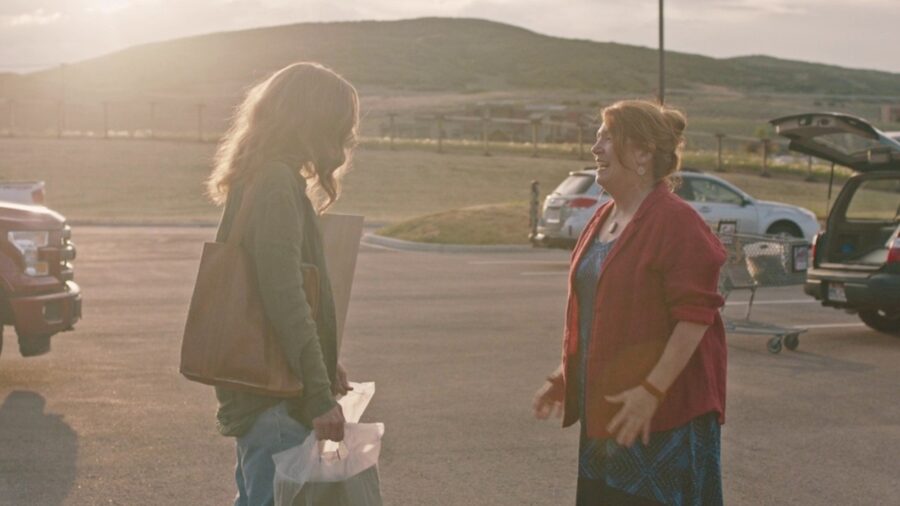
Hereditary primarily focuses on Annie Graham’s grief as she loses not one, but two members of her family. While attending grief counseling, Annie meets a woman named Joan (Ann Dowd), who has been dabbling in the occult. Right of the rip, it’s implied that Joan knows just a little too much about Annie’s life.
When Annie pays Joan a visit to learn about conjuring up the dead so she could talk to her deceased daughter, the camera hangs on the latter’s welcome mat for a disproportionate amount of time, as if to say to the audience “this will come into play later.” As you would expect, the séance doesn’t go well, and everything goes off the rails for the Graham family, one stylish haunting sequence at a time. And you better believe that when Annie goes through Helen’s stuff to make sense of what’s happening to her family, there’s a big old box full of welcome mats like Joan’s to let you know that Joan had frequent interactions with Annie’s mother.
Amazing Performances For A Screenplay That Lacks Subtlety
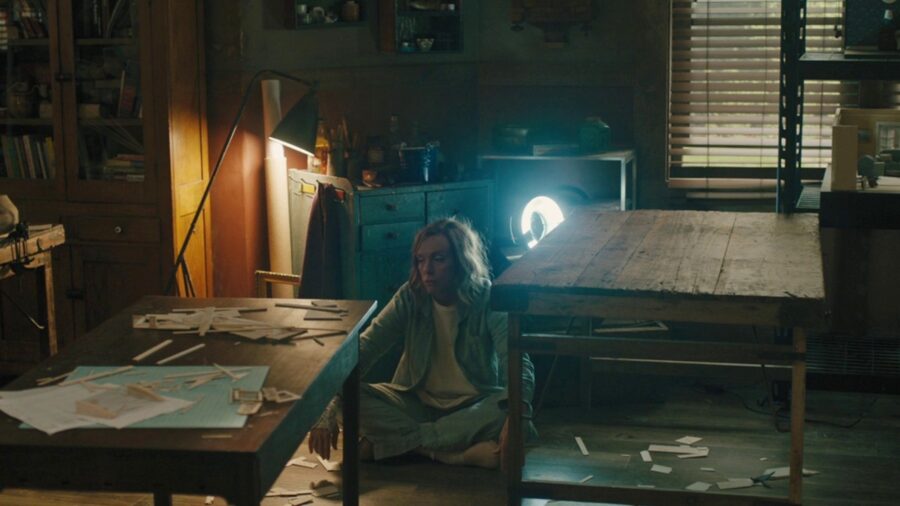

At this point in Hereditary’s narrative, I felt like I was watching two movies at the same time.
On one hand, the dialogue is deliberate in its delivery, and all of the acting talent involved delivered powerhouse performances.
Toni Collette’s ability to shift Annie’s personality from caring and sensitive to cynical and brutal at the drop of a hat is commendable, and I’ll likely watch this movie again for her performance alone. Alex Wolff did an amazing job portraying the traumatized teenager who doesn’t know how to process his own guilt. Solidifying the family lineup is Gabriel Byrne’s Steve Graham, who tries to remain neutral and understanding, but slowly loses patience with Annie as she descends into madness when Hereditary progresses through its second and third acts.
Conversely, and despite all of the good things that Hereditary has going for it, its screenplay still seems forced, which is unfortunate for a horror film that has such a unique premise. Ari Aster’s “clues” throughout the entirety of the film take away any onus of critical thought that should be placed on the viewer, and, in my opinion, strips the film of its suspense despite the fact that Colin Stetson’s film score does a considerable amount of heavy lifting in generating a sense of pure dread.
Maybe I’m just jaded from watching too many horror movies, or maybe I just prefer campy horror comedies like Bloodsucking Bastards, but Hereditary didn’t feel like the masterpiece I’ve been told it was for the above reasons. To quote Peter Griffin from Family Guy, “I didn’t care for it. It insists upon itself.”
Extending an olive branch, I’ll admit that if you’re the kind of person who watches only a couple of horror movies a year, then Hereditary is a film worth seeing for its cinematography, score, and acting alone. But if you’ve become cynical over things like the excessive placement of context clues and foreshadowing, you may find yourself disappointed, and, like me, wondering why this movie gets so much love.
As of this writing, you can stream Hereditary on Netflix.

